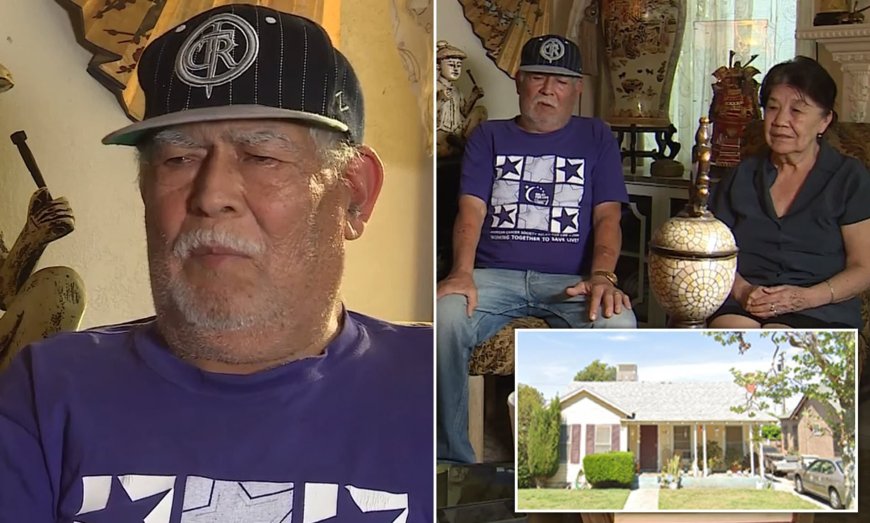Elderly Couple Loses Home of 20 Years, Exploited by Son's Ownership Transfer
California seniors face displacement as son's property transfer leads to eviction, shedding light on elder abuse issues.

An elderly couple in California, Ismael and Angelita Ramirez, faced a devastating eviction in April from the home they'd called their own for two decades. The couple, who had been making regular payments on the property, discovered that their son had transferred ownership without their knowledge, leading to an eviction notice.
Details reveal that the son, involved in the property purchase back in 2003, omitted including the parents' names on the title, creating a legal loophole that left them vulnerable. Despite attempts to seek legal assistance, the couple faced rejection as attorneys hesitated to take on the case due to its unique circumstances.
The situation raises concerns about elder abuse, a pervasive issue affecting millions of older Americans annually. Financial exploitation alone is estimated to result in losses of at least $36.5 billion each year.
As the Ramirezes cope with displacement and inadequate Social Security income, a GoFundMe page has garnered support, surpassing its goal and providing some relief. The incident highlights the need to protect vulnerable seniors and offers valuable lessons on preventing exploitation as one ages.

In light of this, here are practical tips to safeguard against exploitation:
Appoint a Power of Attorney:
Establish a trusted individual to act on your behalf for legal and financial matters while you're mentally capable.
Monitor Your Credit History:
Keep a vigilant eye on financial statements, watch for unauthorized transactions, and consider using credit monitoring services.
Consult a Financial Adviser:
Seek advice from a reputable financial adviser after thorough research into their credentials, experience, and reviews.
Beware of Scams:
Stay cautious of scams targeting older adults, conduct research, and refrain from sharing personal information with strangers.
Create a Living Will:
Develop a legally binding living will or medical directive detailing your healthcare preferences in case you cannot express them independently.
The Ramirezes' story serves as a reminder to proactively address potential vulnerabilities and protect oneself or aging parents from exploitation.
Also Read: US Small Business Confidence Dips: NFIB's November Report Reveals Challenges
































































